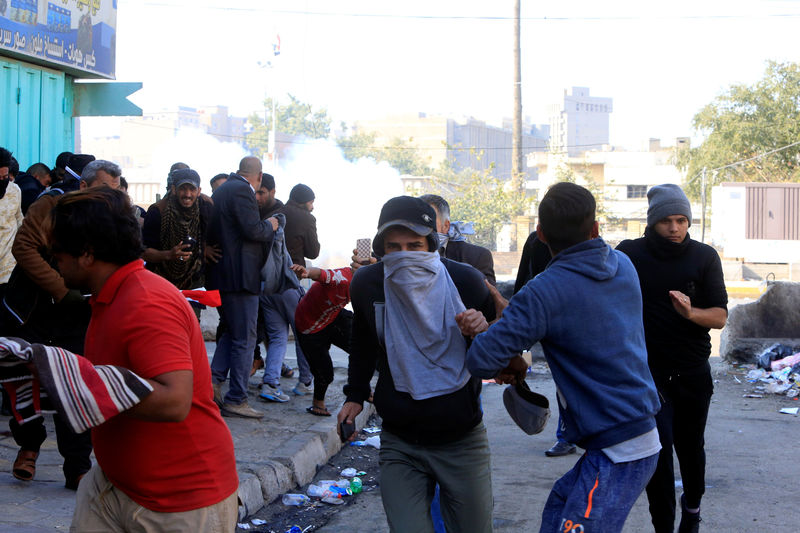By Maher Chmaytelli and Saif Hameed
BAGHDAD (Reuters) - An Iraqi policeman was killed and seven others wounded in clashes with protesters loyal to prominent Shi'ite cleric Moqtada al-Sadr who had gathered in Baghdad on Saturday to demand political reforms, the interior ministry said.
Thousands had gathered in the square to demand an overhaul of the commission that supervises elections ahead of a provincial vote due in September.
Police tried to disperse them as they attempted to cross the bridge that links Tahrir Square (NYSE:SQ) in central Baghdad and the heavily fortified Green Zone, which houses government buildings, embassies and international organisations.
The escalation of problems with Sadr comes at the wrong time for Prime Minister Haider al-Abadi who wants to keep the focus on dislodging Islamic State from the northern city of Mosul.
Police fired tear gas to prevent protesters from getting too close to the Green Zone, witnesses said, choking about two dozen demonstrators, according to the organisers of the protest.
Bursts of gunfire were also heard but it was not clear where they came from.
Sadr's supporters stormed the Green Zone last year after violent clashes with security forces.
An interior ministry statement said guns and knives were found on some protesters.
Sadr issued a statement saying the demonstration was peaceful and accused the police of using excessive force.
He said his supporters wanted to get near the Green Zone to make their voices heard by decision makers, and had no intention of storming it again. Sadr asked the protesters to "withdraw until further notice".
Television footage showed young men, many holding Iraqi flags and covering their faces, running away as smoke filled Tahrir Square.
Sadr suspects that members of the electoral commission are loyal to his Shi'ite rival, former Prime Minister Nuri al-Maliki, one of the closest allies of Iran in Iraq.
Sadr is openly hostile to American presence and policies in the Middle East and, at the same time, he has a troubled relationship with Iraqi political groups allied with Iran.
A political commentator close to Abadi, Ihsan al-Shammari, told Reuters the protests were ill-timed but would not affect the U.S.-backed military campaign on Mosul.
"The protests don't affect the ongoing military preparations to retake Mosul, but the problem is that, at this time, they are disturbing the security situation," he said.
Iraqi forces last month completed the first phase of the Mosul offensive that started in October, by dislodging the militants from the eastern side of the city. They are now preparing to attack the part that lies west of the Tigris river.
